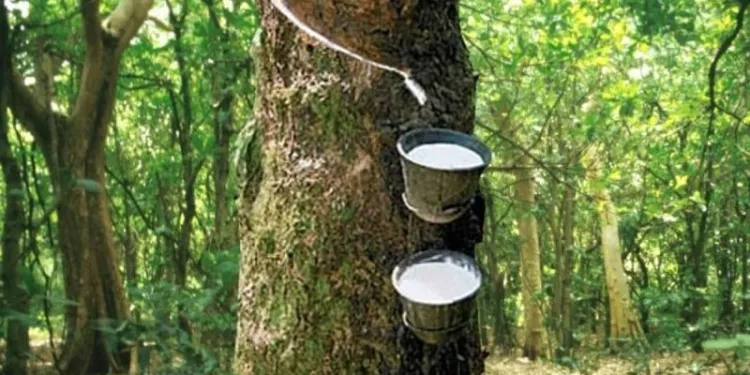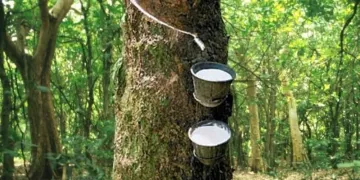KUCHING: Sarawak has great potential to become a major rubber producer in the country but surprisingly it is among the states that produce the lowest volume of the commodity despite having the most area planted with rubber trees.
Although the actual reason for the low production has not been identified, Rubber Industry Smallholders Development Authority (Risda) state director Wahid Marican Mohamad Daud Marican believes it could be due to two possible factors.
“We don’t have the latest figure on rubber production in Sarawak but based on the Malaysian Rubber Board (MRB) report for 2011 that we have, the state produced only about 70 metric tons for that year which is the lowest in the country.
“The reason for this I don’t really know but what I believe is that there are two possible factors. The first one is probably the rubber trees are being left untapped or the trees are mostly old and produce lesser yield,” he said.
Wahid disclosed this in an exclusive interview with The Borneo Post and Utusan Borneo at his office at Al-Idrus Commercial Centre here yesterday.
“But hopefully the production will increase gradually once the rubber replanting scheme implemented by Risda in Sarawak since four years ago starts producing yield in 2015,” he added. He revealed that since Risda first came to the state a total of 7,083 hectares of land had been replanted with new and high yielding rubber trees by 3,922 smallholders.
“Out of the total, 591 hectares were developed in 2009, 2,277 hectares in 2010 and 2011 while in 2012 we replanted 4,221 hectares,” he explained.
He added that this year they aimed to replant 4,000 hectares with new rubber trees and based on the applications they had received, they had exceeded the target.
“For this year, we have so far received applications to develop 4,700 hectares for rubber replanting involving a total of 2,284 participants out of which 4,200 hectares with 1,994 participants have been approved. Out of this, 1,254 hectares involving 668 participants have already received their grants,” he said.
According to him, under the Risda rubber replanting scheme, each participant will be given a grant of RM13,500 per hectare which will be paid in stages through six payments over a period of five years.
“The first payment in the first year will be RM6,300 inclusive of fertilizer while the following payments will be RM2,300 inclusive of fertilizer,” he said.
Meanwhile, Wahid said starting next year they expect to plant at least 5,000 hectares annually subject to the availability of funds.
“We expect to receive more and more applications by next year since the perimeter of more and more native customary rights (NCR) land are being surveyed,” he said.
He explained that one of the criteria to qualify for the scheme is that the applicant’s land must be titled.
“NCR can also be considered with conditions that the status of the land was endorsed by the Land and Survey Department and that such scheme must be in blocks,” said Wahid.
With the replanting areas getting bigger, he said would need more staff as presently it has only 189 officials and staff stationed all over the state, with about 70 per cent of them locals.
“In two years time we hope to have at least 500 workers because by then there will be several new areas we need to monitor. Even now, we are under-staffed but just that it is not that critical,” he noted.
Source: theborneopost.com



























